Simple DIY Laundry Powder || Chemical-Free And Easy To Make
This simple diy laundry powder recipe is going to change your laundry game forever. It does a great job getting your laundry clean, and it’s very economical to make.
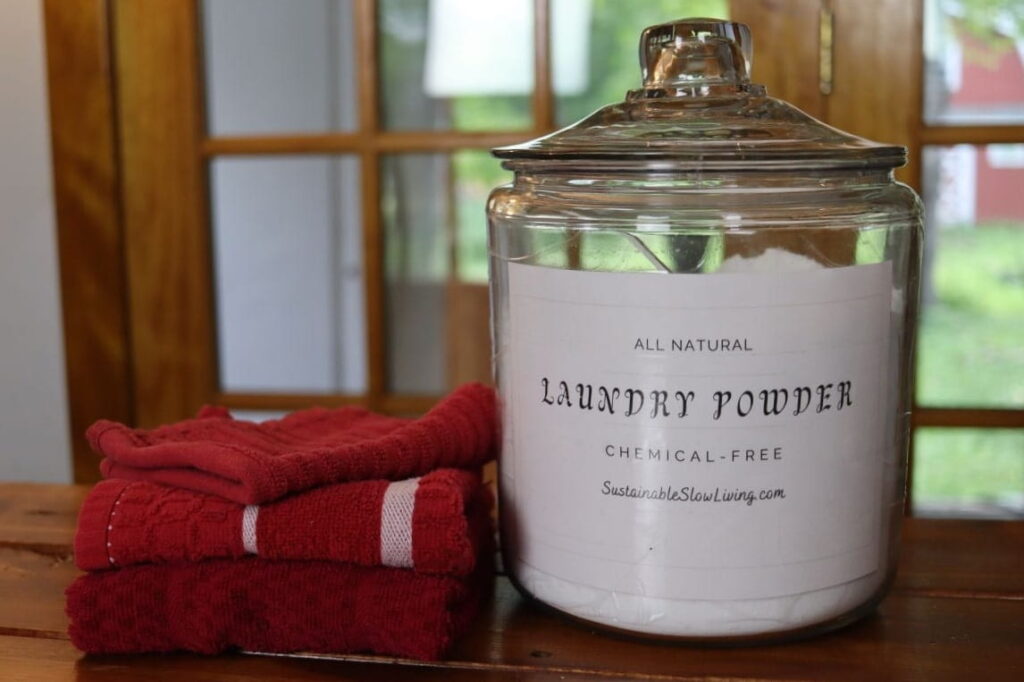
I just started using this formula early this spring. It’s been some time since I made my own laundry detergent. And I was way overdue to get back at it.
This laundry powder cuts down on the toxins in your home environment. And it keeps those nasty commercial detergent residues off your skin.
Laundry is a never-ending chore. And it feels less defeating when I know that I’m providing fresh, clean clothes for my family, without any harmful ingredients involved.
Besides, did you know that a non-concentrated commercially produced liquid laundry detergent contains somewhere between 60 and 90 percent water? And a concentrated version has up to 50 percent water?
That’s just so unnecessary. It’s wasteful, and it clearly depicts the greed that lies on the part of the manufacturers. They are profiting by selling consumers water.
And if that isn’t offensive enough, they are putting it in big plastic jugs. Jugs that either hit the landfills or cost both manpower and energy to recycle.
Keep The Laundry Room Chemical Free
So … basically it comes down to trading just a few minutes of your time making simple diy laundry powder for chemical free clothing and saving a little cash in return. Easy enough, I’m all in!
My laundry room has been stocked with this laundry powder for quite a few months now. And I feel good about it.
You can get your laundry room even closer to chemical free status by switching out your fabric softener for plain old white vinegar. It does a great job softening clothes.
Go even further, and start keeping a handmade universal stain remover on hand. You’ll have met the goal to keep your laundry room chemical free in no time at all.
Benefits of Using Simple DIY Laundry Powder
I really dislike having conversations about all of the health issues that are created as a result of the state of product production in our country.
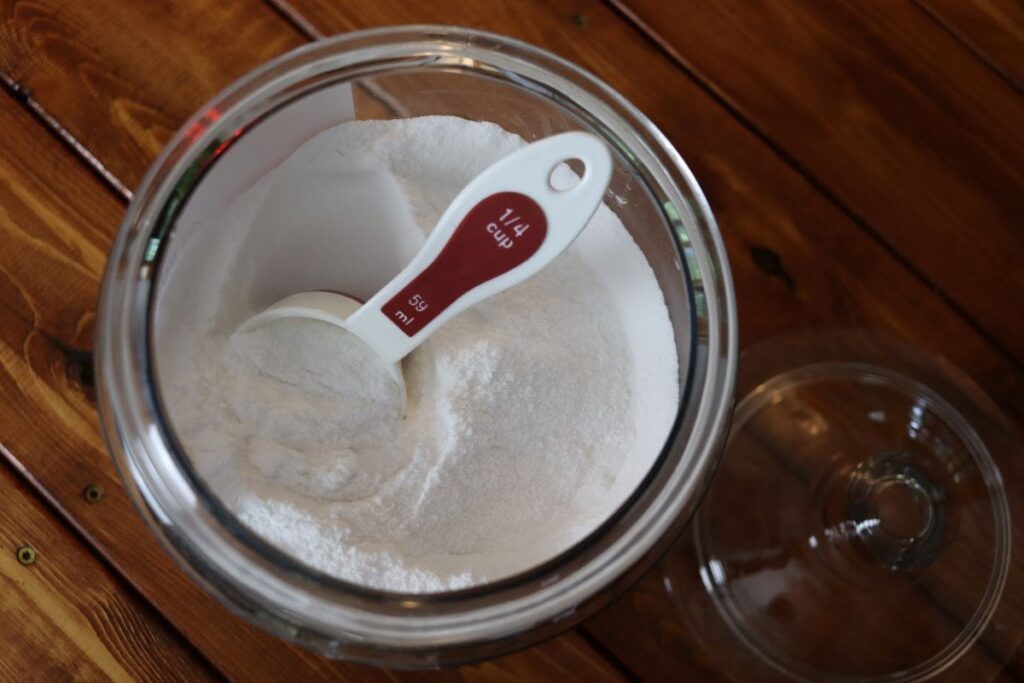
BUT … I guess when you’re writing a blog post about making a simple diy laundry powder, it’s a conversation that can’t be avoided.
So, I’m going to try to keep it short and to the point.
Conventional laundry detergents are jam-packed full of things that have a negative impact on your health. They contain harsh chemicals, and unnecessary fragrances and artificial colors.
They leave a chemical residue on your clothing, which then in turn finds it’s way onto your skin. Your skin is the largest organ of your body, and it absorbs much of what it comes in contact with quite readily.
This results in skin irritation, eye irritation, and rashes for many people. Particularly those who have sensitive skin or are prone to allergies.
However, just because you may not show any outward signs of reaction to the ingredients in commercial detergents does not mean you are unaffected. Your skin is still absorbing these toxins, and your body has to work hard to irradicate them from it’s system.
It’s simply not a formula for optimal health.
Furthermore, some studies have positively linked the chemicals used in the production of commercial detergents to both hormone disruption and cancer.
With all of that said, and even more that could be said, suffice it to say that it is well worth the tiny bit of effort that it takes to make your own laundry detergent.
Ingredients For Simple DIY Laundry Powder
You will find a plethora of recipes out there on the world wide web to make your own laundry products.
For years I made a recipe very similar to the simple diy laundry powder recipe in this post that contained grated soap.
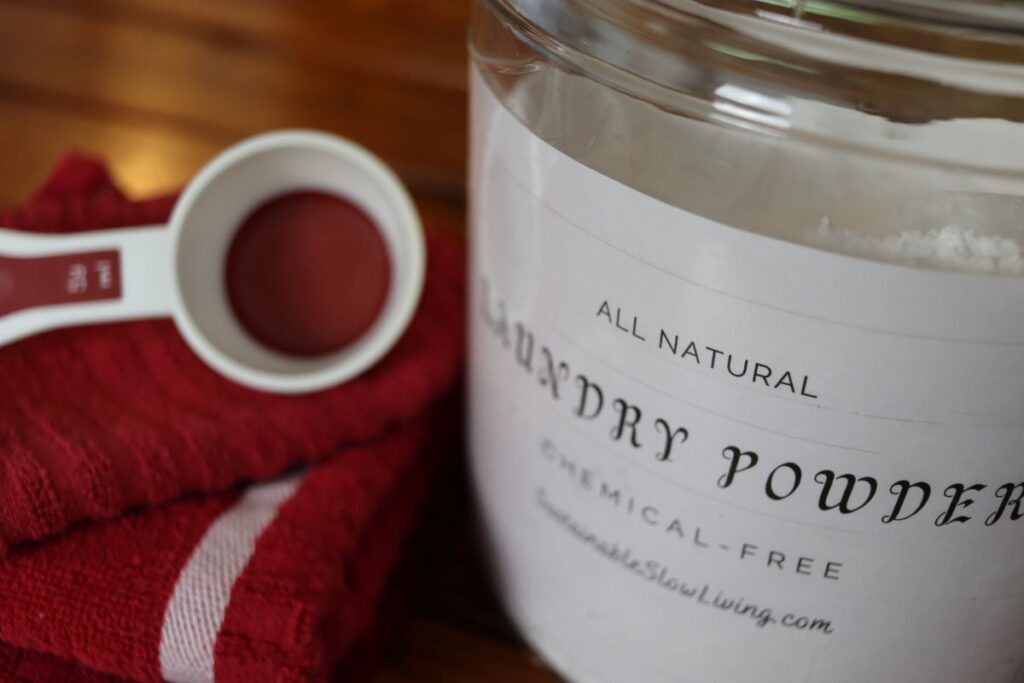
If you prefer to use a recipe with grated soap as an ingredient, you can simply grate a bar of fels naptha, zote, or ivory soap and mix it in with this recipe.
I no longer use grated soap, as I find that it doesn’t make a noticable difference in how clean my laundry comes out, it is troublesome to have it in the mix because it tends to clump very easily, and it leaves an oily build up on your clothing over time.
The recipe I’m using now, and sharing with you today, has just three simple ingredients …
- Washing Soda – Washing soda, or sodium carbonate, is a naturally occuring mineral. It is often used in commercial laundry detergents to aid in the removal of stains from clothing. It lifts soil from your clothing and suspends it in the wash water. It also neutralizes odors and brightens clothes.
- Baking Soda – Baking soda, or sodium bicarbonate is a very effective odor eliminator. It has been used as a laundry aid for many years, and is known to makes clothes whiter and brighter. It also acts as a general stain remover.
- Salt – Salt, or sodium chloride, acts as a stain remover, prevents whites from yellowing, and keeps dark clothes from bleeding onto other clothes.
Can Fragrance Be Added To This Recipe?
I remember how excited I was to experiment with fragrances for handmade laundry detergents when I made my very first ones.
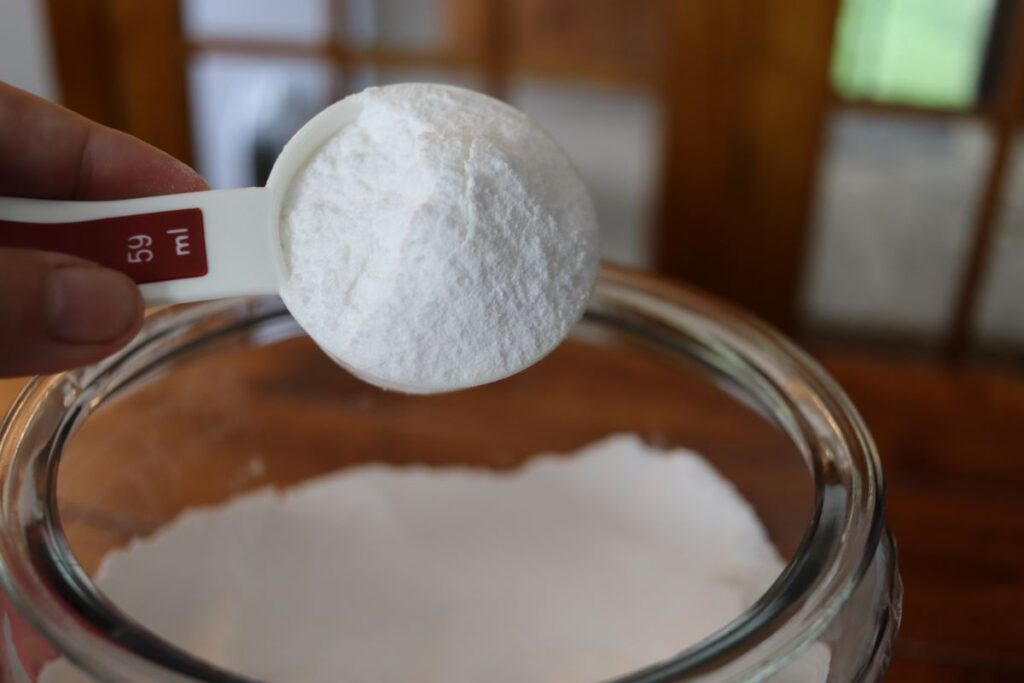
I had an herbal apothecary back then and I had shelves full of essential oils. My choices for adding fragrance to my detergent were endless.
But, unfortunately, after just a few attempts I saw that it wasn’t really worth my time or effort.
Just about every post I read on how to make homemade detergent tells you to add essential oils to it to give it a scent. Many of them even give you different suggested oil blends to try.
The bottom line here is that the amount of oils that you would have to add in order to actually be able to smell them on your clothing is unreasonable. The tiny little amounts that everyone is recommending to use are ineffective. And the sheer volume of oil that would be needed to work is not affordable, not by any stretch of the imagination.
There is A LOT of water in a washers basin when running a load of clothes. It dilutes the oils to the point of obsoletion. Don’t waste your time.
If you cannot live without fragrance, you can add a grated bar of scented soap to your laundry powder. Dr. Bronner’s puts out some really lovely scented bars that are fragrant enough to impart a scent to your simple diy laundry powder.
Personally, I don’t think this is a cost effective practice. And I’m quite alright with my clothes not having a special scent.
For me, it’s a trade-off that I find worth it to have my clothing free of chemical residues. And it can also cause oil build up on your clothing that results in unpleasant odors.
Will My Laundry Smell Bad If I Use Handmade Laundry Powder?
If you use the simple diy laundry powder recipe from this post you will have no trouble with your clothes smelling bad.
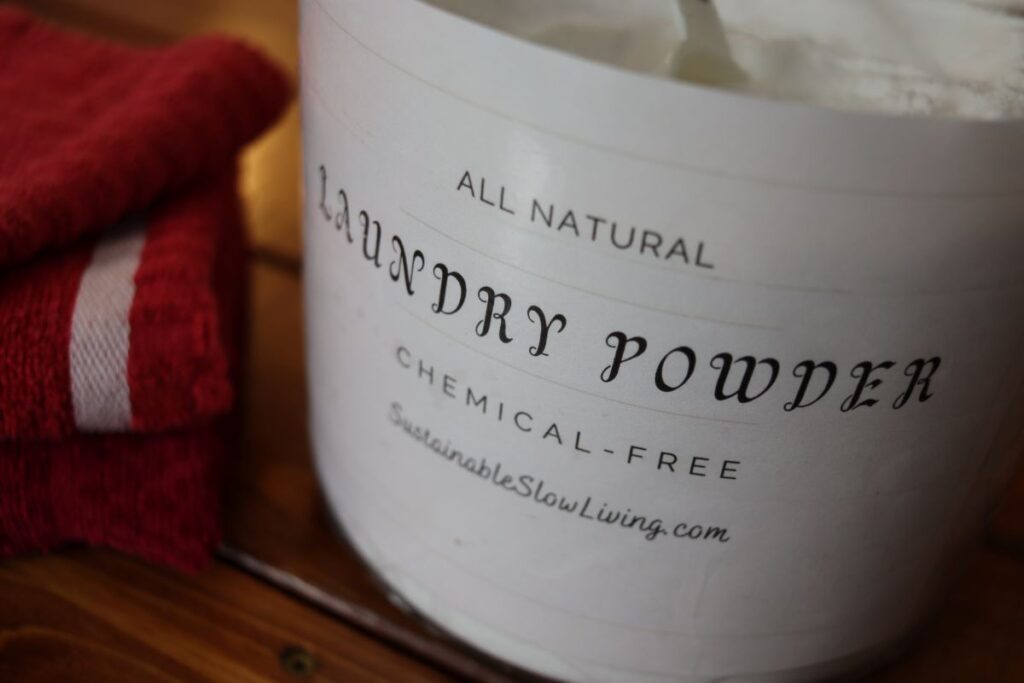
Commercially produced detergents literally bathe our clothes in artificial fragrance in the washing machine. The fact is, when using these products we really have no idea whether or not there is an unsavory odor present in our clothing. The fragrance of them is so strong it overrides the more subtle odors that can build up on clothing over time.
So, if you remove the heavy fragrance from your wash water, that will cause your clothes to have a bad oder, right? No, wrong. And this is why …
Fabric takes on an unpleasant odor when the oils that are present in the detergent that is being used build up on it’s surface.
This micro-layer of oil causes dirt, sweat, and anything else that comes in contact with the fabric to get trapped underneath it. This traps odors into the fabric making them hard to remove.
This simple diy laundry powder does not contain any oil. Therefore, it will not trap odors in the fabric of your clothing.
Oily Build Up On Clothes Can Be Removed
As a matter of fact, over time it will remove the build up that is currently on your clothing and release the odors that are trapped there.
Please note: If you use fels naptha, zote, Dr Bronners, or ivory soap in your detergent to provide a fragrance (as mentioned above) they will leave an oily build up on your clothing, because they are oil based.
I’ve heard it said that washing your clothing in very hot water will prevent that build up from accumulating, but I am not certain that’s true.
You will have to weigh the risks versus the rewards of adding soap to your detergent for yourself. For me, I choose not to bother with the soap.
It is just another ingredient to purchase. And I’m perfectly okay with my clothes not smelling like a ‘rain forest’ or an ‘ocean breeze’, as long as they don’t have an unpleasant odor.
How To Store Simple DIY Laundry Powder
Storing simple diy laundry powder is as easy as putting it in an airtight container and placing it in a cool, dry spot.
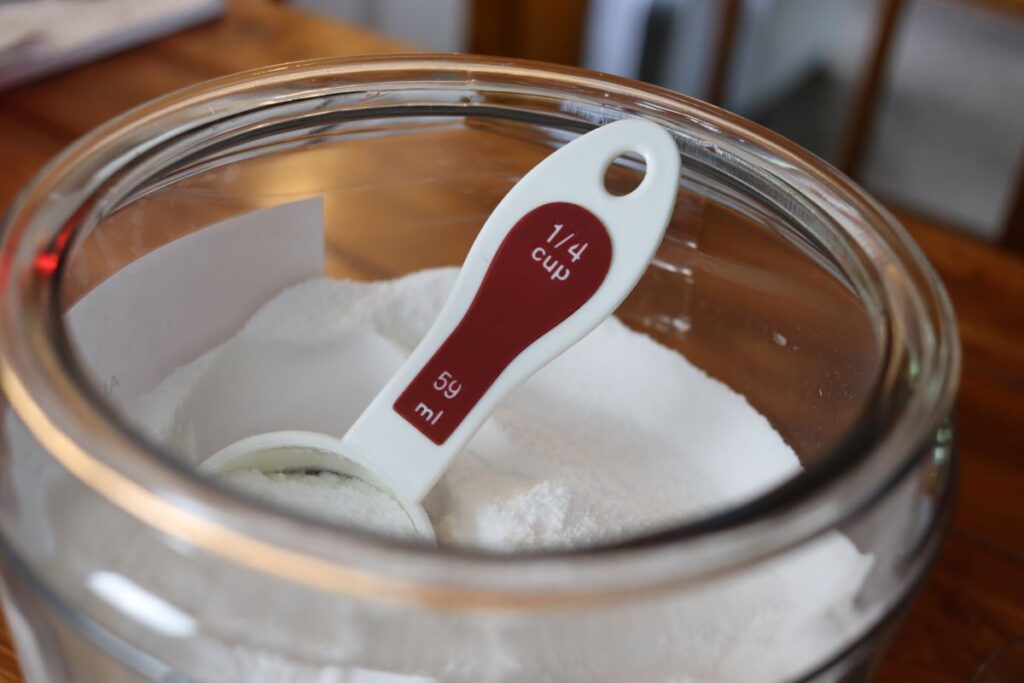
This handmade laundry powder does not contain anti-caking ingredients that are found in commercially produced detergents. So, any moisture that gets into the container will cause it to clump up.
For this reason, I make small batches of laundry powder at a time.
It is crazy easy to make this diy product, so it seems silly to me to make it in bulk if that means I have to be uber concerned about storing it.
I keep the ingredients in my laundry room cabinet. I’ve picked up measuring utensils at yard sales and dollar stores over time, and I keep them right in the boxes. This way, when I need a batch of laundry powder, I can mix one together without ever leaving the laundry room.
Recommended For You
Pin This Post For Later
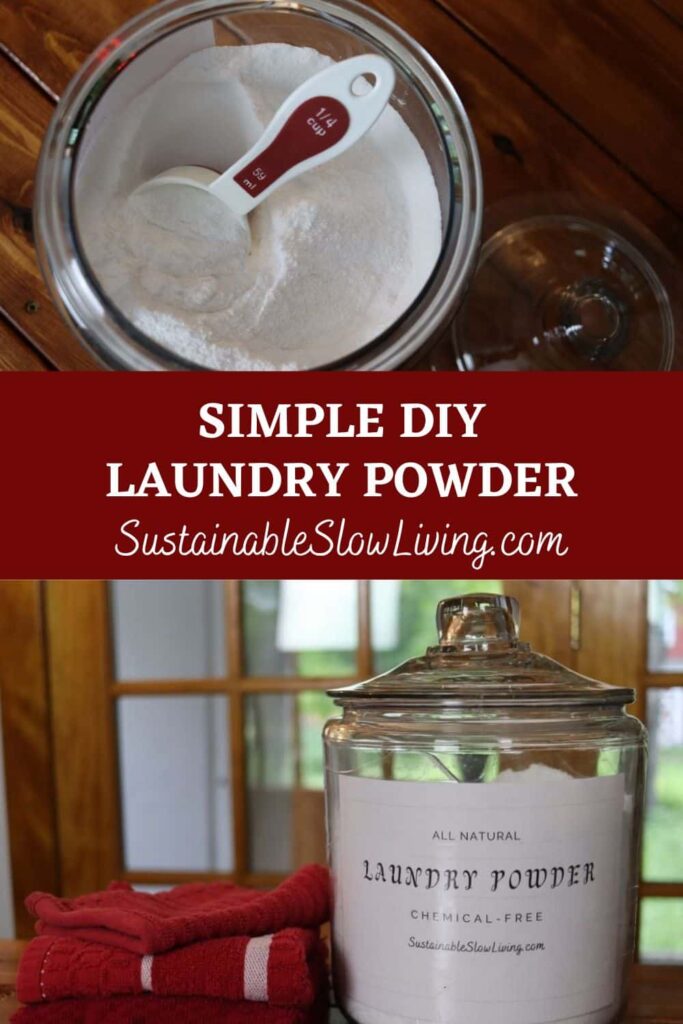
If you try this recipe and love it, please give it 5 stars! It supports my work more than you may realize, and I appreciate that a great deal!
You can also show your support by tagging me on Facebook @sustainableslowliving and/or Instagram @slowlivingbydianegail when you post a pic of your finished laundry powder.
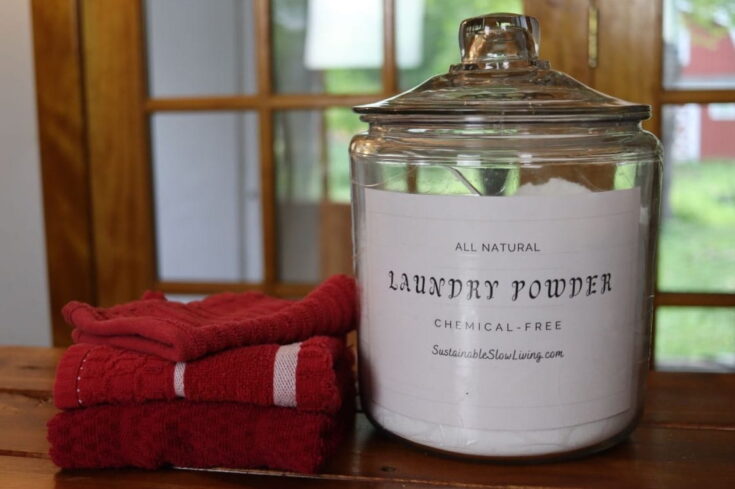
SIMPLE DIY LAUNDRY DETERGENT
This simple diy laundry powder is going to change your laundry game. It does a great job getting laundry clean, and it's economical to make.
Materials
- 4 c washing soda
- 4 c baking soda
- 2 c salt
Tools
- 1 cup measuring utensil
- large bowl
- wooden spoon
- airtight container
Instructions
- Place all ingredients in bowl.
- Mix well with wooden spoon.
- Pour mixture into airtight container.
- Keep in a cool dry place.
- Use 1/4 cup of laundry powder per load of clothing.
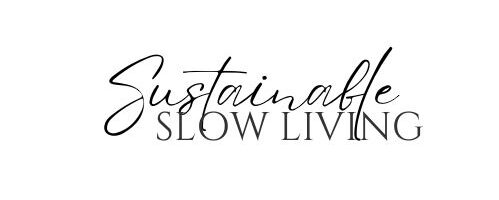
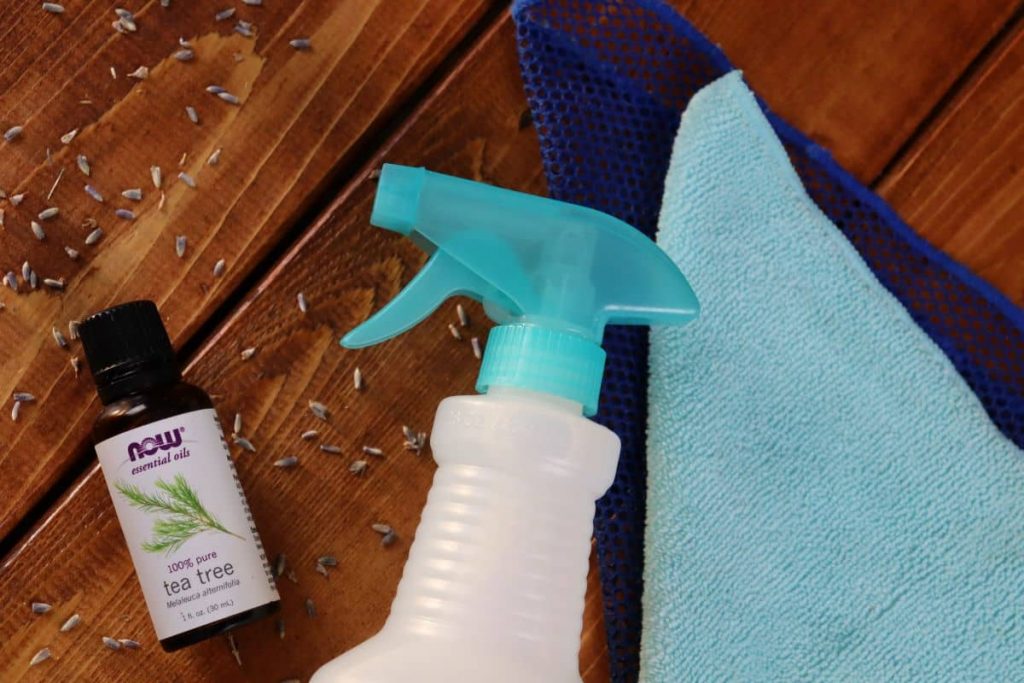
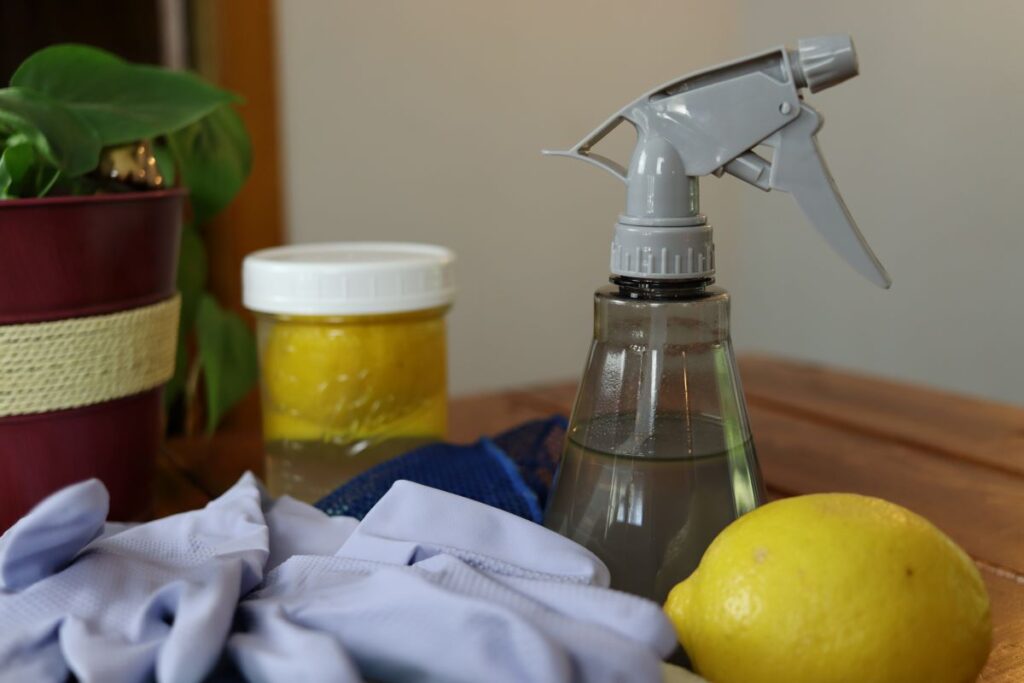
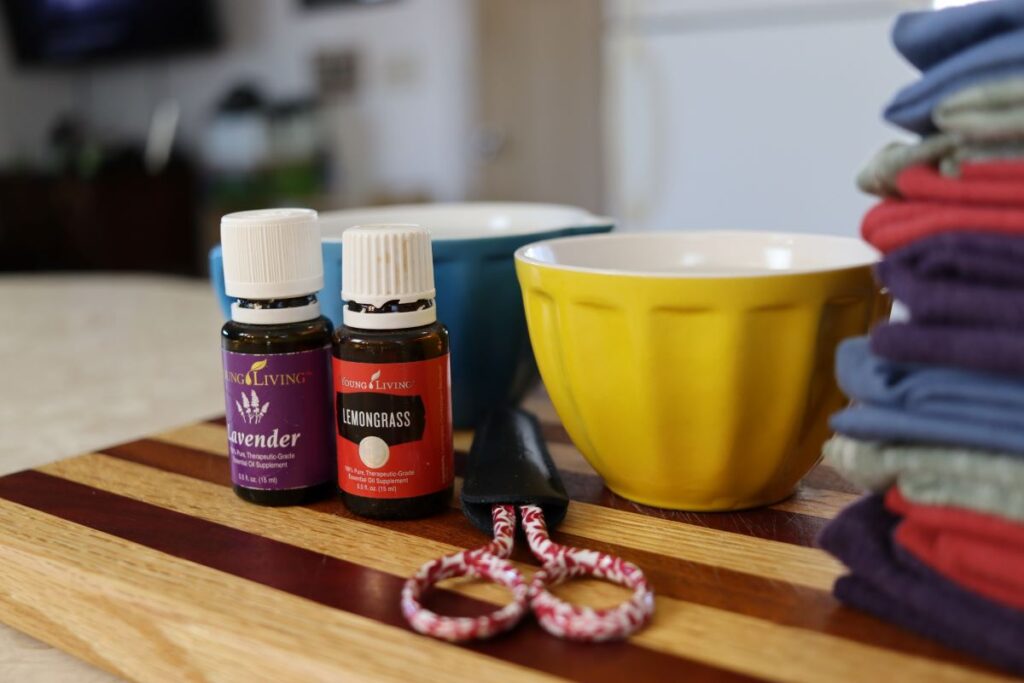
What type do salt do you use?
Same question! What type of salt would you use?
I use everyday table salt to make my laundry detergent Esther. It works great and is inexpensive.
Somehow I missed your comment Micayla. So very sorry. I use basic table salt for my detergent. It is inexpensive and does the trick. Not very healthy to eat. But perfect for detergent.
Can I add borax to this recipe or have you tried it before?
You can add borax if you like. Borax and washing soda are very similar chemically. Borax works better in hot water, while washing soda performs in all temperatures. For that reason I would stick with the higher concentration of washing soda. But if you wash with hot water you might want to go with the borax.
Hi
My first attempt at homemade laundry detergent and finding your site was the perfect answer! Question on your comment on using Borax: if using hot water, would you suggest using it instead of washing soda or in addition to washing soda? How much?
Thank you.
Hello Cindy,
I’m a little confused by your question. I didn’t mention borax at all in the post. You can substitute it for washing soda if you like. It would be an equal swap as far as measurements are concerned. Borax is more of a multi-purpose cleaner. And washing soda is considered more heavy duty.
can you add scent and if so how much
There is a section in the post about adding scent. It can be added. I can’t speak to how much you should add, as in my opinion it would be so much that it is cost prohibitive 😉
Is this okay in a top loading HE washer?
Yes it is Gabby. I have a top loading washer.
Do you find this fades your darks? If so, have tips on avoiding it?
I really believe that fading is about the kind of material that clothes are made of, some materials fade. Others don’t. I know that not everyone would agree with me. But because I feel this way, I’ve never really looked into natural ways to prevent the fading of clothing. I wish I could be more help. But I simply don’t know.
An online friend had shared a DIY powder laundry detergent recipe and I was so excited (washing soda, baking soda, sea salt and epsom salt, it included the essential oils for scent which I ignored) because when I was interested in doing DIY years ago, I ended up finding it so time-consuming it was not worth it to me. Back then the recipe of the day was grating the soap, using a 5 gallon bucket that had a sealing lid, etc. it was for the liquid soap. I was only interested in saving money back then, and the amount of time it was taking didn’t compare to how easy it was for me to learn the couponing/deals game and stock my laundry area with bottle after bottle of very cheap liquid detergent. Now that I am going on 59, I realize that the chemicals in every single thing we use, eat, clean with, etc. are killing us. Two days ago I found your website. I have been working on our food intake and where it is coming from, etc. as in increasing our own resources to make homemade as much as possible and increase our growing our own. Now I am ready to read every post you have made, as I can see that you have spent the time actually researching and being aware of what can help us all with just a little extra effort in the beginning to get it all started. I am extremely happy to be able to have so much info in one place.
DIY homemaking and clean eating are definitely a journey that takes some effort to get started. But once you get going it all becomes second nature. I’m so glad you’re taking the steps you need to move forward with your journey.
We’re all at different places. I’ve fallen back. And I’ve leapt ahead. Just keep going and no matter what hurdles you jump and what ones you simply run into it’s pretty much guaranteed that a year from now you’ll be in a different place.
I hope this site serves you well. Welcome!
Hi I’m Cynthia from Nigeria, I’m loving this natural method of detergent making. I’m really interested to try it out.
But I didn’t read any foam boosting properties. Or does your natural recipe equally produces foam bubbles when doing laundry?
I love foaming detergents especially for laundry.
Hi Cynthia. This detergent doesn’t have any bubbles at all. I’ve never seen an all-natural recipe for home use that does bubble. However, I’ve never looked for one as that isn’t very important to me. I hope you find what you’re looking for.
I forgot to ask in my lengthy comment before, do you sell your adorable label files? Just checking! And, I have now made the lemon kitchen degreaser, as well as starting more jars of the infused lemon and vinegar, orange cleaner, more jars of the orange infused vinegar, the dryer sheets and dish soap! Now onto reading more of your posts…
You go! You’re really going at making the natural cleaning products full force 😉
Hi Diane,
I am new at making my own laundry detergent and I have a few questions. You mentioned about adding the distilled white vinegar, I was wonding how much would I need to add per load and on the salt I use just plain salt not ionized right? Thank you! I am very excited to start using my home made detergent and trying your recipe:).
You should use between 1/4 and 1/2 cup vinegar depending on the size of the load. And you can use any salt. I do use iodized table salt because it is the least expensive. Best to you on your homemade detergent journey 😉